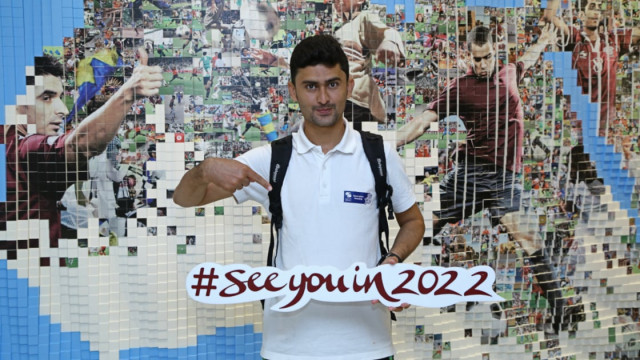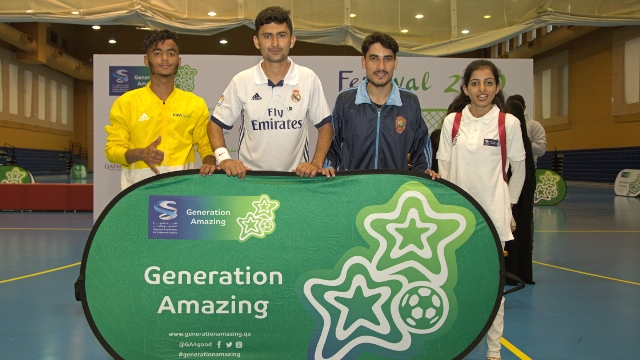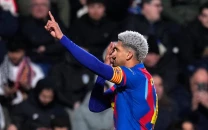Khattak’s story of defiance and determination
Makhdoom Child Academy owner is an ambassador for 2022 World Cup

BIG GOALS: Khattak works with up to 40 young children on a weekly basis as an ambassador for Generation Amazing, which hopes to benefit a million people worldwide by the time the tournament kicks off in less than three years’ time. PHOTO COURTESY: ZAHEER KHATTAK
As a ten-year-old boy, little Zaheer Khattak would dream of becoming a professional player as he kicked a ball about in the street outside his home in the city of Thatta.
But after joining his local team he became frustrated at being continually overlooked during the eight years he was with them.
Frustrated at the lack of opportunity, he decided to set up his own club, the Makhdoom Child Academy, to give underprivileged and disabled youngsters the chance to play the game and reach their potential.
Khattak has been inspired by Generation Amazing, a programme set up by Qatar as part of the legacy of the next World Cup, which the tiny Gulf state is hosting.
The scheme promotes football at grassroots level in disadvantaged communities around the world, either by building pitches to play on or getting local leaders to organise matches.
Now Khattak works with up to 40 young children on a weekly basis as an ambassador for Generation Amazing, which hopes to benefit a million people worldwide by the time the tournament kicks off in less than three years’ time.
His academy promotes inclusiveness by encouraging girls to play as well as boys, but is also aware that cultural sensitivities can demand the two are kept apart.

“They come to play football and we organise a tournament,” said Khattak who works as an engineer and the runs the soccer academy in his spare time. “Children don’t always have the chance to play football, so I thought why don’t I make an academy for them? Now I have many children and they are playing football and learning life skills.”
In December 2019, Khattak travelled to Qatar for the inaugural Generation Amazing Festival, where he took part in workshops on football development as well as learning about football3 methodology — which he has already implemented in his academy.
Football3 methodology involves boys and girls playing with no referees and in three halves, involving a pre and post discussion as well as the game itself. Its emphasis is on fair play and the importance of taking part, not just winning.
“We use both standard skills and Generation Amazing methods in our training activities with children,” said Khattak. “The training and workshops during the festival were really useful for me and I’m now sharing my learnings back home.”
Khattak wants to help children stay off the streets and hopes the academy will keep them from a life of drugs and crime.
“My dream is to see a member of the academy play top-level international football,” he said.



















COMMENTS
Comments are moderated and generally will be posted if they are on-topic and not abusive.
For more information, please see our Comments FAQ